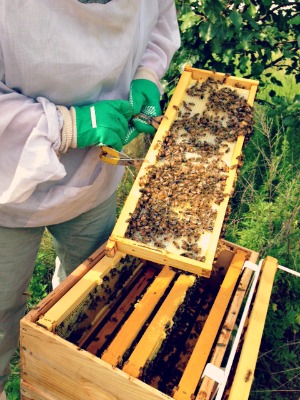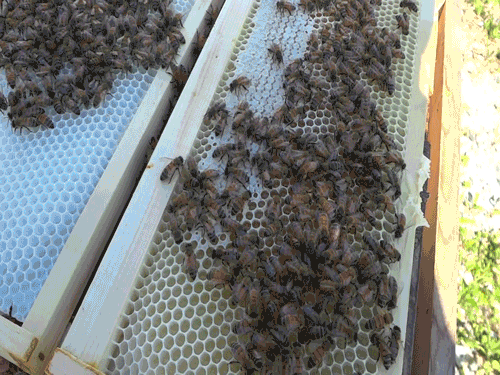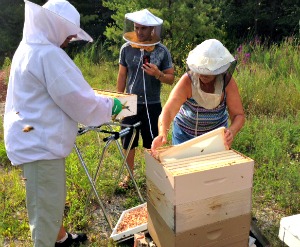Aug 12, 2014
Though it is known mostly for housing the county landfill, recycling center and transfer station, ACUA's Environmental Park lives up to its name by hosting a variety of other environmental activities.
One of the those activities includes providing a home to a growing number of honey bees.

Local beekeepers from Sweetwater Barbara and Anthony Georgoulianos use the ACUA Environmental Park as the location for four of their bee hives.
The first two hives were established after bees were collected from swarms and brought to the ACUA in 2013. These hives were moved to local blueberry farms temporarily when the bushes were in blossom and returned to ACUA in mid-May. Two new hives were added in late June.
The bees spread throughout the area to collect pollen and nectar from plants and flowers and return to the hives to convert it to honey. Once honey is produced, the beekeepers collect some and leave the rest for the bees to feed on.

The Role of the Honey Bee
Honey bees are essential to a healthy and sustainable environment. In fact, honey bees perform almost 80% of crop pollination in the United States. But their populations are dwindling due to what scientists have termed Colony Collapse Disorder or CCD. Many studies point to the use of neonicotinoid pesticides as the culprit for the decline and even the Obama Administration has even launched a task force to address the issue.
Having hives helps to strengthen the honey bee population in the midst of this decline.

How You Can Help
You can help protect pollinators like the honey bee by planting bee-friendly plants (see infographic below), buying local/raw honey, and opting for organic options when treating your lawn and garden.

Image via Whole Foods.